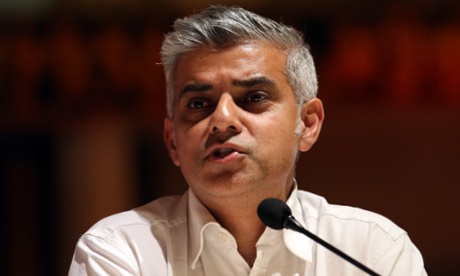On Thursday, voters in Peterborough will take part in one of the most intriguing parliamentary byelections in recent memory. The constituency saw a knife-edge duel between Labour and the Conservatives at the 2017 general election and at last month’s European poll, 38% of voters in the city backed the Brexit party. A first seat in the House of Commons for Nigel Farage’s party is a distinct possibility. If that happens, it will send tremors through middle England, of which Peterborough is typical in many ways, not just geographically.
Economically, Peterborough performs averagely amid struggles with productivity. Wages are stagnant and it has been reshaped by migration, with foreigners arriving to work in the surrounding farmlands and distribution depots, contributing to a decade as the UK’s fastest growing city between 2001 and 2011.
But many Peterborians feel life is getting worse; nothing catastrophic, but a noticeable unravelling. Stagnation of living standards and diminishing prospects, as much as Brexit and migration, are likely to shape how they vote.
With one of the country’s fastest rising city populations, at almost 200,000, Peterborough ranks slightly below the UK average on many social and economic measures. Median annual pay of £27,238 is more than £2,000 lower than the national average, unemployment is 1.4 percentage points higher at 5.7% and the proportion of 16- to 64-year-olds with no qualifications is 22% greater. Life expectancy is lower and rates of premature death from cardiovascular disease are higher.
Skills are a problem. Only 12% of the city’s educational institutions were ranked as outstanding, compared with 20% across England, and the council has cut spending on children’s and young people’s services over the last five years by 55%. The council’s overall budget has fallen 14% in actual terms over that time as central government funding shrank from £55m in 2013-14 to £10m in 2019-20. Productivity is lower than the rest of the UK and more of its working age people have no formal qualifications than the national average.
In the last 15 years there has been considerable migration from eastern Europe, including the Baltic states, joining longer established British Asian groups that make up almost 12% of the population, above the average of almost 8% for England. The extent of eastern European immigration is reflected in the nearly 11% of the population that identified as “other white” in the 2011 census, compared with 4.6% for England.
Since the May 2019 local elections, the council has been in no overall control, but is led by the Conservatives, which retain the most seats. The last parliamentary election in 2017 was won by Labour with 48.1% of the vote, beating the incumbent Conservatives by just 607 votes. The Lib Dems were on 3.3% and the Greens on 1.8%. Ukip did not put up a candidate.
Robert Booth
Sources: Resolution Foundation, Opportunity Peterborough, Peterborough City Council
One way to understand the changes people here have lived through is to visit 124 Eyrescroft, a three-bedroom, one box room, ex-council house on the Bretton estate. The housing scheme was built in the 1970s during a wave of optimism, after Peterborough was designated to be a new town by Harold Wilson’s government. The vision was to build four leafy townships around the cathedral city’s historic centre.
The first tenants of 124 Eyrescroft were the Hobbs family with their five children – Keith, Joanne, Debbie, Martin and Steven. When they arrived in 1975 from south London they found a local pub, numerous play areas and that everyone knew their neighbours.
“There was Irish Anne, Difna next door, Sylvie in 117,” Keith Hobbs, now 49, told the Guardian.
Their father had a steady job in the Freemans catalogue warehouse. “We’d leave our bikes outside the door and the door unlocked, but now you can’t,” he said. “We used to have a guy picking up the litter and weeding. If there was an issue with the paths, the council would come out. The state of the paths now is unbelievable. It’s changed completely, and has gone downhill”.
Today, 124 Eyrescroft’s past as a proud family home is just a memory. It has been subdivided into five rooms, all let out to different tenants. It is partially clad in rotten wooden panels with weeds erupting from its front path.
One of the owners, collecting rents of around £280 a month per room – which adds up to well over the rental price of a three-bed house – is Mark Homer. He and Rob Moore are prominent local buy-to-let landlords, who together have built up a portfolio of some 500 properties in Bretton and across Peterborough since around 2005. 124 Eyrescroft, (which Homer owns with another man) was bought for £107,000 in 2007, which suggests it has long since paid itself off. (Homer disputes this suggestion). Homer, 39, drives a bright white Porsche 911 Carrera S and lives in a listed farmhouse near affluent Stamford. Moore boasts of driving Ferraris and flying helicopters. The pair set up a business teaching others how to do the same, selling courses named Buy-to-Let Boom and No Money Down.
When Homer tries to show the Guardian the house he can’t find it, admitting: “I don’t think I’ve been here for 10 years.”
During the recession, he and Moore bought homes close to repossession and then rented them back to the original owners who had now moved on to housing benefit. They would aim to buy homes in the worst, most distressed condition and fix them up, Homer said. One had been lived in by a known paedophile and nobody wanted it. They offered tenants a discount to stay there. Some properties were burned out. But a three-bedroom house worth £80,000 would rent for £500, a healthy 7% yield after the recession hit.
Dozens of people have lived in 124 Eyrescroft in recent years, records show. Yves Okofo, a care worker who arrived from France three years ago, lives there now. He works up to 60 hours a week and has little to do with his neighbours. “We don’t socialise much,” he said. “You get in and you get out.”
The leaders of Peterborough city council are concerned about the impact private landlords have had on social cohesion.
“Buy to rent hasn’t helped build community,” said John Holdich, the Conservative leader. “People are in six months and are gone. They don’t play a part in the community.”
His colleague, Cllr Irene Walsh, represents a ward on the Orton estate, built at the same time as Bretton, where Homer and Moore own more houses. She said they have tried staging community meals to bring people together, but it didn’t work. Now they are trying community litter-picking, a solution that in itself reflects the deep cuts to the council’s funding since 2010. Central government funding fell from £81m to £10m today and the council’s total budget for 2019/20 is £25m lower than the £176m available in 2013/14.
Thousands of new homes have been built in Peterborough in a new estate called the Hamptons, but many are too expensive for people with the most basic needs. Some have been bought up by buy-to-let landlords, including at least one based in Singapore. Rents have been going up even if wages haven’t, tenants report. Since 2017, the number of households across Peterborough presenting themselves to the council as homeless has more than doubled to 2,300.
Outside the food bank at the Salvation Army, Jade Meins, 31, a mother of two collecting a food parcel, said the father of her five-year-old daughter has been homeless for five months since they split up. He had spent spells sleeping rough. She said she has been looking for work for two years and faced a six-month delay to get on to universal credit. She is now paying interest charges on an advance she received. She grumbles about foreign arrivals getting jobs that local people want. Many people dismiss that argument, saying the incomers work hard, are reliable and do work others won’t. But people do feel alienated by other impacts of migration. Rita Donavan, 70, a nurse in Peterborough for 52 years now volunteering at the food bank, said: “I came here to do my training, but I wouldn’t come here today.”
She gave the example of communication problems, with so many languages being spoken. “What you could treat in half an hour in A&E is taking you four times as long once you get through to Language Line [a translation service]. That’s the kind of stuff that is not audited.”
Why is there a by-election?
Former Labour MP Fiona Onasanya lost her seat after being jailed for perverting the course of justice. She become the first parliamentarian to be removed from office after a recall petition.
How did the parties do at the last election?
In 2017 a close vote saw Labour take the seat from sitting Conservative MP Stewart Jackson with a majority of just 607.
Labour - Fiona Onasanya 22,950
Conservative- Stewart Jackson 22,343
Liberal Democrat - Beki Sellick 1,597
Green - Fiona Radić 848
Who is standing this time?
Labour are hoping to retain the seat with Unite trade unionist Lisa Forbes, who previously contested it in 2015. The Conservatives will try to prise it back with local businessman Paul Bristow.
Ex-Tory businessman Mike Greene is to stand for the Brexit party, their first attempt to secure an MP, which comes just two weeks after they won the largest vote share at the European Parliamentary elections.
An attempt to form an alliance of pro-remain parties to support a single candidate collapsed. Representatives of the Liberal Democrats, the Green party, Renew and Change UK failed to reach an agreement on a single independent candidate. The Lib Dems and the Greens are now standing separately, while Change UK will support the Renew candidate Peter Ward.
When will we know the result?
The by-election is on Thursday 6 June. Polls close at 10pm, and the result should be known within a couple of hours.
Avril Baines, 57, who grew up around Lincoln Road, one of the main roads in the city, said she had no problem with newcomers taking jobs that she said British workers tend to refuse, but admitted the area no longer feels like home.
“There’s no way I would walk down Lincoln Road,” she said. “It just makes me feel uneasy.”
In the office of his property company, its walls adorned with photos of entrepreneur celebrities like Lord Sugar and James Caan, Homer said: “The indigenous, white, blue-collar people are left behind. This place is surrounded by picking fields. The eastern Europeans have been dragged into work and it has caused consternation. In this town, the migrants have become the scapegoats.”
But people also sense deeper changes to the social fabric, caused in part by the march of buy-to-let property investors, the retreat of the state from providing housing for the working class and ever-shrinking funding for maintaining the fabric of neighbourhoods. With Brexit dominating the byelection, there is little room to debate much of that.
• This article was amended on 4 June 2019 to correct details of the description and ownership of 124 Eyrescroft.










